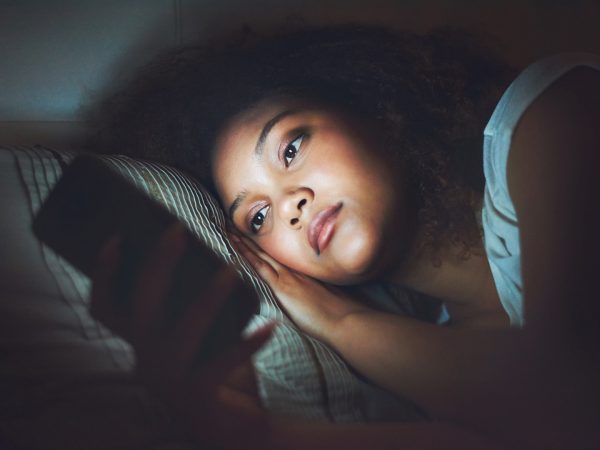Overcoming Insomnia With Blue Light?
I read an article about a blue light box that helps insomnia. You place the box on or next to your bed, watch the light and coordinate your breathing with it. Do you know about this? Can it really help?
Andrew Weil, M.D. | December 18, 2008

I discussed your question with Rubin Naiman, Ph.D., a psychologist and author who specializes in integrative sleep and dream medicine. He said that he’s aware of products that purport to facilitate sleep by using blue lights, but that evidence shows that the blue end of the light spectrum inhibits the production of melatonin, a key neurotransmitter that regulates biorhythms and induces sleep. Dr. Naiman wrote to one of the manufacturers of the blue light boxes and asked for scientific evidence of its efficacy but never received an answer.
If you’re struggling with insomnia, you’ve got a lot of company: about one third of all adults worldwide. While there’s no “magic bullet” for this problem, most people can find relief from insomnia with the following natural remedies:
- Establish a consistent bedtime routine, and try to go to bed at the same time every night. Get plenty of exercise during the day. The more energy you expend during the day, the sleepier you will feel at bedtime.
- Reduce or eliminate your intake of caffeine, stimulants and alcohol. Even when consumed early in the day, these can affect sleep.
- Avoid large meals late in the evening.
- Learn and practice a relaxation technique regularly. Breathing exercises, meditation and yoga are good examples.
- If you can’t fall asleep within half an hour of going to bed, get up and read or do something calming until you feel sleepy.
- Use “white noise” devices to block out surrounding environmental noise.
- Take a hot bath before bedtime. Add a few drops of a relaxing bedtime bath oil that contains lavender to the water. But keep the temperature in the bedroom cool.
- Spend some time outdoors during the day to get exposure to bright, natural light.
- Try to give yourself some time – up to an hour – in dim light before you go to sleep at night.
- The two best natural sleep aids are valerian and melatonin:
- Valerian, a sedative herb, has been used for centuries. Take one to two capsules of an extract standardized to 0.8% valerenic acid a half hour before bedtime.
- Melatonin is a hormone that regulates the wake/sleep cycle and other daily biorhythms. Try sublingual tablets (to be placed under the tongue and allowed to dissolve); take 2.5 mg at bedtime as an occasional dose, making sure that your bedroom is completely dark. A much lower dose, 0.25 to 0.3 mg, may be more effective for regular use.
Andrew Weil, M.D.









